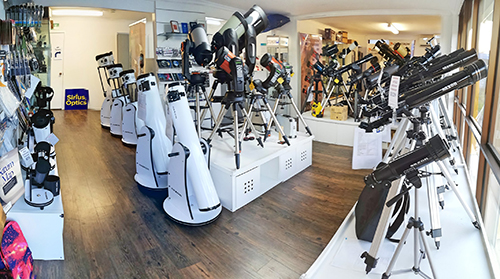You may also be interested in the following product(s)
-
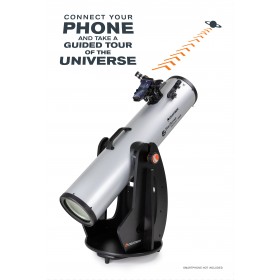
Celestron Starsense Explorer 8 Inch Dobsonian
AUD $1,499.00 -
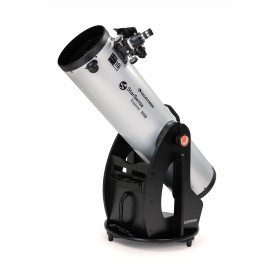
Celestron StarSense Explorer 10 Inch Dobsonian
AUD $2,049.00 -
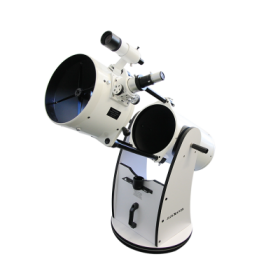
saxon 10 Inch DeepSky CT Dobsonian Telescope
AUD $1,449.00 -
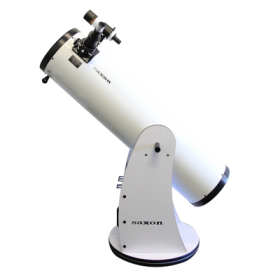
saxon 10 Inch DeepSky Dobsonian Telescope
AUD $1,199.00
Details
The saxon 8" DeepSky CT Dobsonian Telescope features a powerhouse telescope with amazing light-gathering capabilities that's easy to use and transport.
This beginner telescope is the retractable twin to the full-tube Saxon 8" DeepSky Dobsonian Telescope and comes with the same specs of having a mirror of 203mm aperture (diameter) and a focal length of 1200mm.
NOTE: This is not a telescope that sits on a table and the base holding the telescope sits on the ground. Dobsonian reflector telescopes do not use tripods.
Featuring a collapsible truss-tube dobsonian design, the optical tube can be retracted into a shorter length and locked down to ensure secure and easy transportation. This scope also comes with a paraboloidal primary mirror to eliminate spherical aberration allowing you to see wide-field views of the Moon, constellations and deep sky objects such as the Great Orion Nebula.
Assembly of the telescope requires no additional tools. You'll be pleased with how easy it is to use the Saxon 8" DeepSky CT Dobsonian Telescope with its Dobsonian mount. Simply swivel the telescope to the direction of your intended object and look through the eyepiece. This scope's Teflon bearing system in both axes with tension control handle means you'll be able to smoothly move your telescope to a precise location.
The DeepSky CT Dobsonian Telescopes series comes in three sizes - 8", 10" and 12".
What is a Dobsonian telescope and why the tension control handle?
A simple, elegant form of an alt-azimuth mount made to carry a Newtonian reflector was popularized by John Dobson in the late 1970's. The Dobsonian mounted telescope is popular among amateur astronomers and telescope makers because of its simplicity. In its simplest form, the Dobsonian mount consists of a box which allows the optical tube assembly to pivot in altitude, while the box itself is swivelled on a base in azimuth.
The Dobsonian mount usually relies on the friction between the side bearings on the optical tube of the telescope and a frictional material on the saddle to hold the optical tube in place. If there is too much friction, the telescope is difficult to move to center an object in the field of view. If there is too little friction, the telescope will not stay where it is positioned. This makes stabilizing the optical tube of the telescope difficult when using a Dobsonian mount, especially when accessories, such as a finderscope or an eyepiece, are added to the optical tube. As long as the amount of friction is at an appropriate level, and therefore stabilization of the optical tube is achieved, the telescope can remain in its desired position to view an object and maintain its position even when the mount is rotated.
The devices for stabilizing a telescope on the Dobsonian mount currently available include: a sliceable weight to counter balance the weight of the telescope, a friction lock that must be adjusted to inhibit movement of the telescope, and a spring attached between the telescope tube and mount to aid in stabilization.
These devices are inconvenient to use because they do not provide a simple and user-friendly way to adjust the friction. The objective of the saxon Tension Control Handle invention is to provide a tension adjuster that users can easily turn to add or reduce tension, thereby increasing or decreasing the friction between the optical tube and the sideboard of the mount.
By providing such a tension adjuster, the telescope does not need to be balanced in order to stay in position. The tension adjuster can be tightened such that the optical tube can stay in a position but can still be moved when prompted to adjust the position of the optical tube. Alternatively, the tension adjuster can be completely tightened to lock the optical tube in position.
Additional Information
| Specifications |
|
|---|


